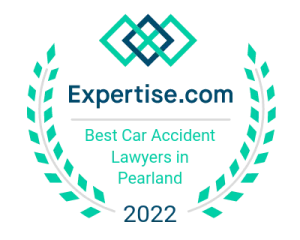Spinal cord injuries can be life-altering events, leading to permanent disability, chronic pain, and significant medical expenses. If you or a loved one have suffered a spinal cord injury due to someone else’s negligence, it’s crucial to seek the help of a Copperas Cove spinal cord injury lawyer. This comprehensive guide will provide you with the information you need to understand your legal rights and options, as well as how a skilled attorney can help you navigate the complex legal process and fight for the compensation you deserve.
The Importance of Hiring a Spinal Cord Injury Lawyer
Spinal cord injuries are unlike any other personal injury case. They often involve long-term medical care, rehabilitation, and specialized equipment – all of which can be incredibly expensive. Additionally, victims may face a lifetime of lost wages, reduced earning capacity, and emotional trauma. A Copperas Cove spinal cord injury lawyer who specializes in these types of cases can help ensure that you receive the compensation you need to cover these expenses and provide for your future.
A skilled spinal cord injury attorney will have a deep understanding of the medical aspects of your injury, as well as the legal aspects of your case. They can help you gather evidence, establish liability, and calculate the full extent of your damages – both economic and non-economic. Additionally, they can negotiate with insurance companies on your behalf, helping you secure a fair settlement that reflects your needs and losses.
Types of Spinal Cord Injuries
Spinal cord injuries can be classified into two main categories: complete and incomplete. A complete spinal cord injury occurs when the spinal cord is entirely severed, resulting in total loss of function below the level of the injury. Incomplete spinal cord injuries, on the other hand, involve partial damage to the spinal cord, leading to varying degrees of function loss.
Some common types of spinal cord injuries include:
- Paraplegia: Paralysis of the lower extremities and often the lower torso, typically resulting from injuries to the thoracic or lumbar spinal cord.
- Quadriplegia (tetraplegia): Paralysis of all four limbs and torso, typically resulting from injuries to the cervical spinal cord.
- Brown-Séquard syndrome: A rare condition characterized by motor function loss on one side of the body and sensory loss on the other side, often caused by a penetrating injury to the spinal cord.
- Central cord syndrome: A condition in which the center of the spinal cord is damaged, resulting in greater functional loss in the upper limbs than in the lower limbs.
Causes of Spinal Cord Injuries
There are numerous potential causes of spinal cord injuries, many of which can be linked to someone else’s negligence. Some common causes include:
- Vehicle accidents: Car, truck, and motorcycle accidents are a leading cause of spinal cord injuries. Driver negligence, such as speeding, texting while driving, or driving under the influence, can result in devastating crashes that cause spinal cord damage.
- Falls: Slip and fall accidents, falls from heights, and falls on construction sites can all lead to spinal cord injuries if proper safety precautions are not in place.
- Acts of violence: Gunshot wounds, stabbings, and physical assaults can cause spinal cord injuries.
- Sports and recreational accidents: High-impact sports, such as football, rugby, and skiing, can lead to spinal cord injuries if proper safety equipment is not used or if participants engage in overly aggressive play.
- Medical malpractice: Surgical errors, misdiagnoses, and other acts of medical negligence can result in spinal cord injuries.
Proving Liability in a Spinal Cord Injury Case
To successfully recover compensation in a spinal cord injury case, you must establish that another party’s negligence caused your injury. This typically involves proving the following elements:
- Duty of care: The defendant owed you a duty to act with reasonable care to prevent harm.
- Breach of duty: The defendant breached this duty by acting negligently or failing to take necessary precautions.
- Causation: The defendant’s breach of duty directly caused your spinal cord injury.
- Damages: You suffered damages (economic and non-economic) as a result of your injury.
A Copperas Cove spinal cord injury lawyer can help you gather evidence to support your claim, such as medical records, witness statements, and expert testimony. They can also help you establish the full extent of your damages, including past and future medical expenses, lost wages, and pain and suffering.
Compensation for Spinal Cord Injury Victims
The compensation you may be entitled to in a spinal cord injury case depends on the severity of your injury and the extent of your damages. Potential damages in a spinal cord injury case include:
- Medical expenses: This includes emergency care, surgeries, hospital stays, medications, assistive devices, and ongoing care and rehabilitation.
- Lost wages: If your injury prevents you from working, you may be entitled to compensation for your lost income.
- Loss of earning capacity: In cases where your injury permanently impacts your ability to earn a living, you may be able to recover compensation for your reduced earning capacity.
- Pain and suffering: This includes both physical pain and emotional distress resulting from your injury.
- Loss of consortium: Spinal cord injuries can impact your relationships with your spouse or partner, and you may be entitled to compensation for this loss.
Conclusion: Trust Your Case to a Copperas Cove Spinal Cord Injury Lawyer
If you or a loved one have suffered a spinal cord injury due to someone else’s negligence, it’s essential to seek the assistance of a skilled Copperas Cove spinal cord injury lawyer. At Joe I. Zaid & Associates, our Houston personal injury attorneys are committed to helping you navigate the complex legal process and fighting for the compensation you deserve.
Don’t hesitate to contact us at (346) 756-9243 or visit our office at 4701 Preston Ave, Pasadena, TX 77505. Our team is ready to provide you with the support and guidance you need during this challenging time.




